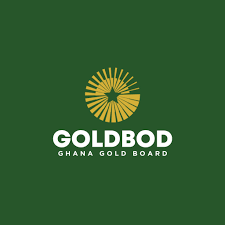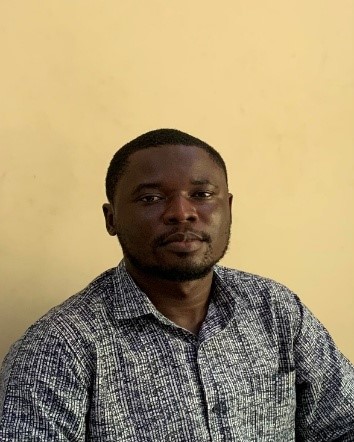By Theophilus AMOAH
Ghana, Africa’s leading gold producer, derives a significant portion of its foreign exchange earnings from gold exports.
Ghana generated US$7.6billion from gold exports in 2023 and US$11.64billion in 2024, accounting for nearly 15 percent and 53.2 percent of year-on-year increase in gold export (Bank of Ghana, 2024).
In accordance to ensuring economic stability and transformation, the government launched the ‘Ghana Gold Board Initiative’, a bold policy aimed at regulating gold trade, stabilising the cedi and maximising state revenue.
The initiative plans to purchase three tonnes of gold weekly (144 tonnes/year), injecting an estimated US$250million per week (US$13billionannually) into the economy.

However, can this initiative curb environmental destruction while driving economic transformation? Or will it inadvertently incentivise more small-scale mining activities?
Economic impact: Potential gains and risks
- Strengthening foreign exchange reserves and cedi stability
Ghana’s gold sector remains a vital contributor to the national economy, generating US$5.8billion from 130 tonnes of official exports in 2024.
However, illicit gold smuggling continues to undermine the sector full potential, with an estimated US$1.7billion (Global Financial Integrity, 2024), nearly 30 percent of total production, lost through unregulated trade, according to the Global Financial Integrity report.
This not only deprives the country of critical foreign exchange but also hampers efforts to stabilise the Ghanaian cedi, which depreciated by 24 percent against the U.S. dollar in 2023.
The Ghana Gold Board’s ambitious plan to purchase 144 tonnes of gold annually could significantly improve the nation economic management. If successful, the initiative could boost formal gold exports by 11 percent, potentially adding US$6.5billion to foreign exchange reserves.
This influx of hard currency would strengthen the central bank’s ability to stabilise the cedi and curb inflation driven by currency depreciation.
Moreover, increased gold revenues could help reduce Ghana’s reliance on international debt markets, especially as the country debt-to-GDP ratio reached 88 percent in 2024 (International Monetary Fund (IMF)).
Gold-backed reserves may also pave the way for innovative financial instruments that enhance economic stability.
However, achieving these goals hinges on the Gold Board’s ability to outcompete smuggling networks. Many small-scale miners prefer the black market due to higher prices and fewer bureaucratic hurdles.
To redirect this flow into formal channels, the initiative must offer competitive pricing, streamlined processes and timely payments.
Without addressing these market inefficiencies, the strategy risks falling short of its potential to strengthen Ghana’s foreign reserves and currency stability.
Formalising small-scale mining: Revenue vs. illicit trade risks
Ghana’s small-scale mining sector, with only 20 percent of operators functioning legally, represents a major challenge and opportunity for national revenue generation and resource governance.
The Ghana Gold Board Initiative aims to formalise this largely informal sector by offering competitive incentives, such as a US$60/gram purchase price compared to the black market US$45/gram, to encourage legal operations.
This 33 percent price premium is designed to shift miners’ preference away from illicit channels, potentially unlocking US$500million annually in taxes and royalties.
Formalisation could also stimulate local economies by creating more stable employment and business opportunities, while channelling new revenue toward development needs like infrastructure, education and environmental restoration.
Despite these prospects, significant hurdles remain. Smuggling networks, particularly across Ghana’s borders with Togo and Burkina Faso, continue to syphon off gold worth an estimated US$300million annually.
These illicit trade routes, often supported by corrupt officials and weak border controls, may adjust quickly to regulatory reforms by increasing black market prices. To counter this, the Gold Board will need to reinforce its economic strategy with robust enforcement, strengthening border security, implementing digital tracking of gold shipments and applying strict penalties to deter smuggling and corruption.
A further concern is that increased demand from the Gold Board could lead to environmentally and socially harmful mining practices, as miners expand operations to meet higher production targets. Risks include encroachment into sensitive ecosystems, over-mining, unsafe extraction methods and exploitation of labour.
To prevent such outcomes, the government must implement strong oversight mechanisms such as licence verification, regular environmental audits, blockchain-based tracking of gold origin and community monitoring systems. Ultimately, the success of formalising the sector will rely on maintaining a careful balance between compelling economic incentives and rigorous regulatory control.
- Economic growth vs. reliance on small-scale mining
The statement that “illegal small-scale mining (galamsey) contributed 5.7 percent (GH¢4.3billion) to Ghana 2024 GDP” by the current Finance Minister exposes a troubling economic paradox.
Ghana small-scale mining sector plays a significant economic role, contributing 5.7 percent (GH¢4.3billion) to the 2024 GDP and supporting over 1.2 million livelihoods. However, this economic benefit comes at a severe environmental cost.
The Ghana Gold Board Initiative aims to formalise the sector; but without strict environmental safeguards, there is a risk of institutionalising destructive practices under the guise of regulation.
This could make it harder to eliminate harmful activities in the future, especially as the country faces the risk of the “resource curse”, where overreliance on mining erodes other sectors like agriculture and makes the economy vulnerable to global commodity price fluctuations.
To avoid these pitfalls, the Gold Board must implement policies that tighten environmental standards, reinvest mining revenues into other sectors and support skills transition programmes. Additionally, zoning laws should protect agricultural lands; and the Gold Board must demonstrate that regulated mining can bring long-term community benefits.
Conflicting government policies complicate this effort, with agencies like the EPA and Minerals Commission trying to curb illegal mining, while the Finance Ministry recognises its economic value.
Ghana needs a dual strategy of strict environmental enforcement and the development of sustainable alternatives, potentially guided by models like Norway’s sovereign wealth fund, to ensure the Gold Board Initiative transforms the sector into a driver of sustainable growth rather than a symbol of ecological destruction.
Environmental impact: Can the initiative curb destruction?
- The ecological crisis: Mercury, deforestation and water pollution
Ghana’s small-scale mining sector has unleashed a severe ecological crisis, with mercury pollution, deforestation and farmland degradation causing widespread harm. An estimated 100 tonnes of mercury are released annually by galamsey operations, contaminating water sources relied upon by 16 million people (World Health Organization, 2024).
Rivers such as the Pra, Ankobra and Birim, once essential for drinking water and irrigation, are now laden with toxic sediment, resulting in serious health issues like kidney failure and birth defects.
Despite official bans on mercury use, weak enforcement allows miners to continue prioritising profit over public health. Communities now rely on costly trucked-in water, and the health and economic burden is mounting.
Environmental destruction extends to Ghana forests and farmlands. The country loses 29,000 hectares of forest annually due to land clearing by miners, accelerating climate change, reducing biodiversity and affecting rainfall patterns (Forestry Commission, 2024). The Upper Guinean rainforest and other protected areas are increasingly encroached upon, while deforestation worsens soil erosion and flooding.
Even more alarming is the degradation of farmland: 40 percent of arable land in key agricultural regions like Ashanti and Western has been rendered unusable. Open pits and chemical runoff have devastated crop production, leading to rising food insecurity and threatening Ghana’s food sovereignty.
If these trends persist, the nation could lose up to 60 percent of its cultivable land within the next decade, deepening rural poverty and increasing dependence on food imports.
- Will the Gold Board incentivise more mining?
The Ghana Gold Board initiative, while aiming to formalise gold production and regulate the market, could inadvertently lead to an expansion of both legal and illegal mining activities.
The introduction of a guaranteed market with stable prices may incentivise miners to intensify their operations, expand beyond licensed areas and use more aggressive extraction methods.
This could result in further encroachment into protected forests, riverbanks and the recruitment of additional labourers, potentially including underage workers – all of which could exacerbate environmental and social issues.
The success of the Gold Board depends on several critical factors, including robust monitoring systems, transparent purchasing protocols and immediate penalties for environmental violations.
However, with weak enforcement capacity, corruption within mining operations and porous border controls, the initiative risks becoming an unintentional driver of illegal mining and environmental degradation.
If not carefully managed, the board could fuel further ecological destruction instead of addressing it, as evidenced by similar experiences in other African nations with mineral-rich economies.
- Sustainable alternatives: What more can be done?
To effectively reform Ghana small-scale mining sector, the Gold Board Initiative must adopt a holistic strategy that prioritises sustainability and inclusivity, rather than simply legalising harmful practices.
A key pillar is technology-driven enforcement using drones with multispectral sensors, AI image analysis, satellite data and ground-based sensors to monitor mining activity, detect mercury use and track deforestation in real time.
This data should be centralised under an empowered environmental crimes unit to streamline enforcement. Proven in countries like Guyana and Brazil, this approach can significantly reduce illegal mining activities and enhance accountability.
Equally important is promoting economic diversification and clean mining technologies. A US$200million investment in alternative livelihoods, such as agro-processing, bamboo plantations, aquaculture and eco-tourism, can restore degraded land and create sustainable income streams.
Transitioning to mercury-free gold extraction through regional training centres, microfinance, tax incentives and certification programmes is also critical.
Lessons from Tanzania show these techniques can improve gold recovery while reducing mercury use and protecting health. For Ghana mining reforms to succeed, these sustainable alternatives must be central to the Gold Board mission, not secondary measures.
Conclusion: Striking the right balance for sustainable development
The Ghana Gold Board Initiative offers a unique opportunity to formalise small-scale mining, creating a structured marketplace that could generate substantial economic benefits, including increased tax revenues and a boost to foreign exchange reserves.
By bringing miners into the formal economy, the initiative could significantly contribute to national development goals.
However, this economic potential must be carefully balanced against the environmental risks posed by the sector. Without strong safeguards, the Gold Board could inadvertently incentivise further environmental degradation, turning it into a tool for laundering destructive mining practices into the formal economy.
To ensure the initiative’s success, three key commitments are necessary: enforcing environmental conditionality, reinvesting in sustainability and prioritising community-centred transitions.
These include mandatory environmental assessments, real-time monitoring of mining sites and the reinvestment of gold revenues into land reclamation, water treatment and renewable energy.
The Gold Board Initiative has the potential to set a global standard for responsible mining, but only if it prioritises sustainable practices and engages affected communities in decision-making.
The legacy of this initiative will depend on whether it fosters long-term prosperity or perpetuates ecological destruction, making the need for careful, well-designed systems crucial to Ghana’s future.
Author: Theophilus Amoah
Theophilus is the Director of GreeNAC Consult, an environmental management and climate change resilience advisory service provider in Ghana and across West Africa..
Email: [email protected]










